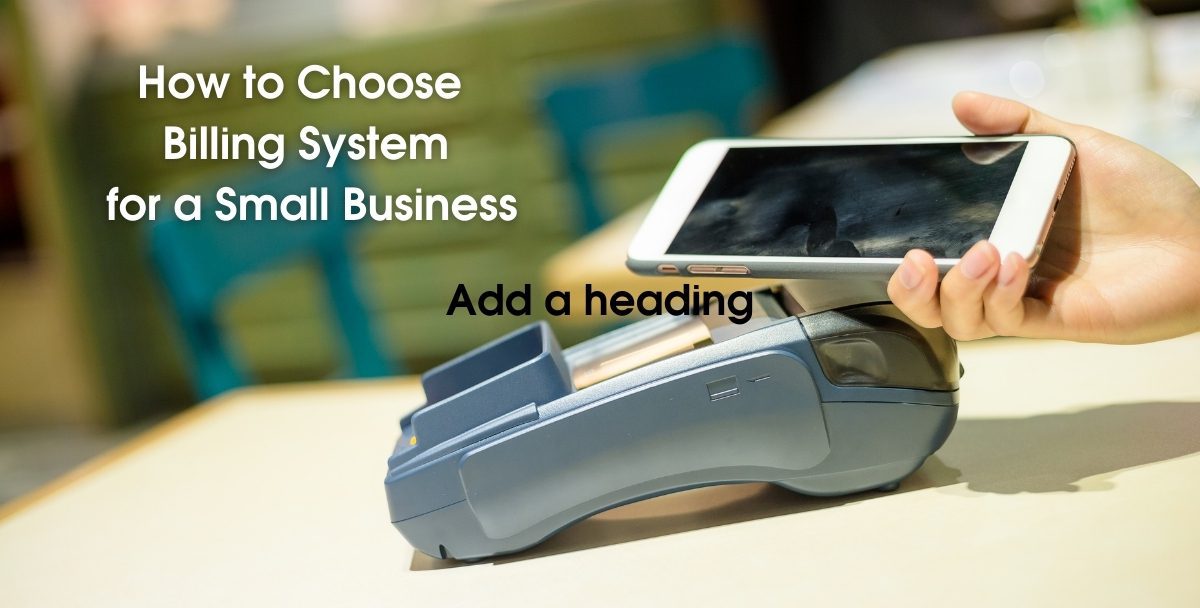How to Choose a Billing System for a Small Business

Choosing a billing system for your small business is one of the major decisions that you will ever make. Regardless of the products or services that your business provides, billing remains to be a bigger portion of your daily operations. From generating invoices and monitoring them, to receiving payments and tracking your income and expenditure, these tasks can take a toll on you. Besides, the bigger challenge comes in managing customer experience—which calls for accurate and faultless billing.
So, what makes billing systems important for small businesses? First, they help you to save money and time. Secondly, a billing system can transform and streamline your financial operations, thus allowing you to focus on quality product or service delivery, and other essential aspects of managing your business.
Data security
This is the first thing to consider when choosing a billing system for a small business. You should determine whether the system stores data in a third-party server on its server. It’s always recommended to ask the billing system developer about the data security measure they’ve put in place to protect your information.
Besides, you can verify if the solution providers use HTTPS connection (you can check their website URL). This is a security protocol that guarantees that the data transferred from your PC to the provider’s server is encrypted and safe from hackers. Whenever possible, make sure that you view the provider’s security certificate on their site.
Choose a solution that supports different currencies and languages
Today, the growth in the internet and technology has made the world a global village. With this, it’s been possible for small businesses to transact with international clients. Thus, cloud-based billing solutions have become very popular, since they allow businesses to select their preferred currency and language during a billing process.
This has made transactions and interactions between small business and international clients clearer and smoother. Online billing systems have eliminated payment barriers since they can operate faultlessly in today’s global marketplace. Besides, cloud-based billing systems allow business owners to access the system from any location, thus eliminating any possible delays in the billing process.
Ease of use
Most small business owners are not proficient in managing their accounting books. Thus, they should have a billing system to make things easier for them. An easy-to-use ERP accounting system, with a clean and user-friendly interface, is a must for small businesses, as it allows the owners to focus on other essential tasks. Such a system makes it easier for small business owners to view and understand their business’ financial status, even when they’ve hired a professional accountant.
Scalability
Most small business owners make one great mistake when choosing a billing system—failing to consider the future of their business. As a result, they end up choosing a system that cannot support the needs of their expanding operations. This can slow the progress of your business, and force you to choose another billing system, which can be very costly.
Therefore, a small business should choose a billing system that scales with the needs of the business. If possible, you should choose a solution that provides free features for entry-level business, and can be upgraded to a premium version, with the features that you need when your business grows in the future.
Invoice details
A good billing system, such as Enterprise billing platform Kansys, should allow you to include essential information when creating an invoice. Think about the kind of information that you need to be included in your invoices. Other than your business and client information, you might need a billing system that allows you to add each item you are charging the client for in a separate line.
If possible, the invoice should show details for project start and completion dates, hourly rates—wherever applicable, and other related information. Besides, the system should allow you to create invoices with unique codes for every client for easy management.
Notifications
Every invoice or bill sent should have a due date. Thus, you should choose a billing system that automatically reminds you, and your clients of their past due invoices. With this, it becomes easier for you to track any pending invoices, and follow up with the respective clients is possible. Some billing systems can remind clients of their due invoices via email or text.
Support
If you have a technical problem with your billing system, you are more likely to contact the system’s customer service to help you in resolving the issue. Typically, you will have three options for contacting customer support—email, phone call, or chat. Regardless of the options, you have to contact customer support, choose a billing system that provides 24/7 customer support.
Bottom Line
Statistics indicate that most small businesses fail because of financial related issues. You don’t want your business to be next in line because of a poor billing process. A billing system can help to streamline your billing process—thus making it easier for you to send and track your invoices. Lastly, you should choose an industry-specific billing system, that’s right for your business.
